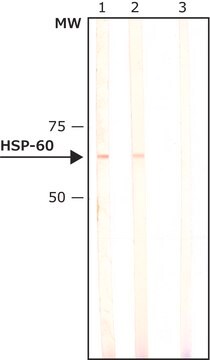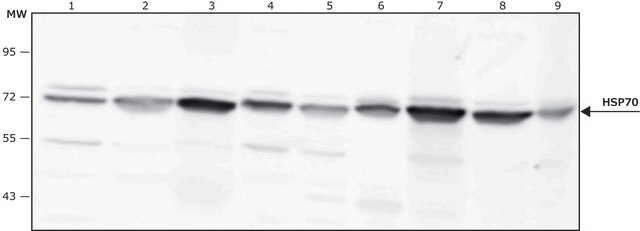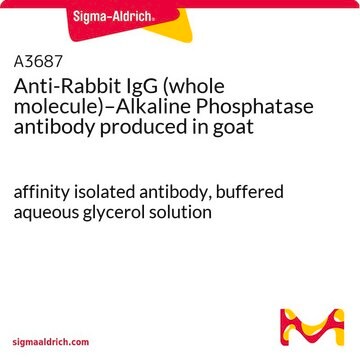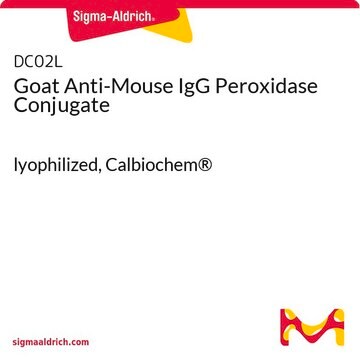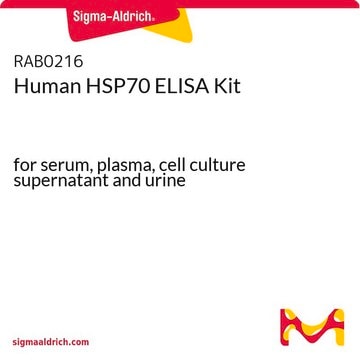Wichtige Dokumente
H5147
Monoclonal Anti-Heat Shock Protein 70 antibody produced in mouse
clone BRM-22, ascites fluid
Synonym(e):
HSP70 Antibody - Monoclonal Anti-Heat Shock Protein 70 antibody produced in mouse, Hsp70 Antibody
About This Item
Empfohlene Produkte
Biologische Quelle
mouse
Qualitätsniveau
Konjugat
unconjugated
Antikörperform
ascites fluid
Antikörper-Produkttyp
primary antibodies
Klon
BRM-22, monoclonal
Mol-Gew.
antigen 70 kDa
Speziesreaktivität
bovine, chicken, guinea pig, plant, Drosophila, rat, human, nematode, rabbit, hamster
Methode(n)
electron microscopy: suitable
immunohistochemistry (frozen sections): suitable
indirect ELISA: suitable
microarray: suitable
western blot: 1:5,000 using bovine brain extract
Isotyp
IgG1
UniProt-Hinterlegungsnummer
Versandbedingung
dry ice
Lagertemp.
−20°C
Posttranslationale Modifikation Target
unmodified
Angaben zum Gen
human ... HSPA1A(3303) , HSPA1B(3304)
rat ... Hspa1a(24472) , Hspa1b(294254)
Allgemeine Beschreibung
Spezifität
Immunogen
Anwendung
Immunoprecipitation (1 paper)
Western Blotting (4 papers)
- enzyme-linked immunosorbent assay (ELISA)
- immunoblot
- dot blot
- immunocytochemistry
Biochem./physiol. Wirkung
Sonstige Hinweise
SAB4200714 Anti-Heat Shock Protein 70 (HSP70) antibody, Mouse monoclonal
clone BRM-22, purified from hybridoma cell culture
Haftungsausschluss
Sie haben nicht das passende Produkt gefunden?
Probieren Sie unser Produkt-Auswahlhilfe. aus.
Empfehlung
Ähnliches Produkt
Lagerklassenschlüssel
10 - Combustible liquids
WGK
WGK 2
Flammpunkt (°F)
Not applicable
Flammpunkt (°C)
Not applicable
Hier finden Sie alle aktuellen Versionen:
Analysenzertifikate (COA)
Die passende Version wird nicht angezeigt?
Wenn Sie eine bestimmte Version benötigen, können Sie anhand der Lot- oder Chargennummer nach einem spezifischen Zertifikat suchen.
Besitzen Sie dieses Produkt bereits?
In der Dokumentenbibliothek finden Sie die Dokumentation zu den Produkten, die Sie kürzlich erworben haben.
Kunden haben sich ebenfalls angesehen
Unser Team von Wissenschaftlern verfügt über Erfahrung in allen Forschungsbereichen einschließlich Life Science, Materialwissenschaften, chemischer Synthese, Chromatographie, Analytik und vielen mehr..
Setzen Sie sich mit dem technischen Dienst in Verbindung.
